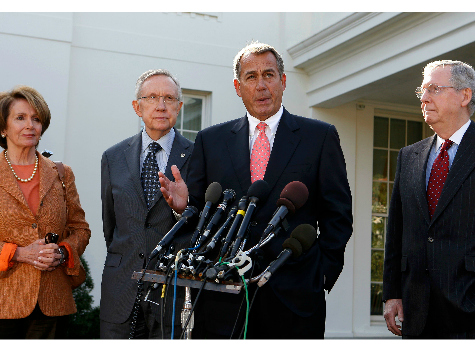The Venn Institute has just released it mid-term scorecard on International Religious Freedom (IRF) for the 113th session of Congress, and Congress has received a resounding F.
Only a handful of members received high scores: on the House side Frank Wolf (R-VA), Trent Franks (R-AZ), Gus Bilirakis (R-FL), and Joe Pitts (R-PA); in the Senate John Boozman (R-AK), Marco Rubio (R-FL), Richard Durbin (D-IL), Roy Blunt (R-MO), James Inhofe (R-OK), John Cornyn (R-TX). A far greater number received a notably bad score: on the House side, a whopping 262 members received Fs, whereas in the Senate, the majority, seventy-two members, received Cs.
To be fair, international religious freedom issues are not always dealt with most effectively through legislation, as the Venn Institute report itself acknowledges. Members can often be more effective by lobbying behind the scenes for the release of people imprisoned for their beliefs, speaking publicly against religious persecution, or quietly exerting pressure on the administration. For example, in 2011, Reps. Frank Wolf (R-VA) and Anna Eshoo (D-CA), who were at the time co-chairs of the Caucus for Religious Minorities in the Middle East, were able to pressure the State Department to locate a missing $30 million that had been designated for Christians in Iraq but which had somehow gone astray. In 2013, Congressman Chris Smith (R-NJ) was instrumental in getting the Foreign Terrorist Organization (FTO) designation for Boko Haram, the Nigerian Islamist group that has made Nigeria the second deadliest country in the world for Christians (after Syria).
Behind-the-scenes efforts such as these are not measured on the scorecard. However, given the sharp rise in religious persecution in recent years, one has to ask why more members of Congress are not taking a stronger stand. According to a recent study by The Pew Forum on Religion and Public Life, “the share of countries with a high or very high level of social hostilities involving religion reached a six-year peak in 2012.” Churches are being destroyed in Afghanistan, Iraq, Syria, Egypt and Nigeria, and Christians are being chased out of lands they have inhabited since the days of the Apostles. But the United States government has not made protection of religious freedoms a priority, and most members of Congress are doing little to object.
According to Lindsay Vessey, Executive Director of the Venn Institute, the most significant achievement of the 113th Congress has been the passage of House Resolution 301, which provides for the establishment of the Special Envoy to Promote Religious Freedom of Religious Minorities in the Near East and South Central Asia. However she also notes that Senators Mike Lee (R-UT) and Tom Coburn (OK) placed holds on the Senate version (S. 653), preventing it from going to a vote. Mike Lee, a conservative Republican, would be a natural supporter of religious freedom, and his objection may be linked more to the issue of spending funds on a position already ostensibly covered by the State Department’s Ambassador-at-Large, a position which is currently vacant. Additionally, Senator James Inhofe introduced S.Res. 69, a resolution calling for the protections of religious minority rights and freedoms in the Arab world, but that too has stalled: it has been stuck in the Committee on Foreign Relations since March 2013.
So while the Venn Institute’s scorecard may not be a perfect measure of all that Congress is doing to protect international religious freedom, it seems a fair assessment of a general apathy among members. For a nation founded on the very principal of religious freedom, the United States is being remarkably silent on that issue today.
Katharine C. Gorka is the president of the Council on Global Security and contributing Co-Editor of Fighting the Ideological War – Winning Strategies from Communism to Islamism.



COMMENTS
Please let us know if you're having issues with commenting.